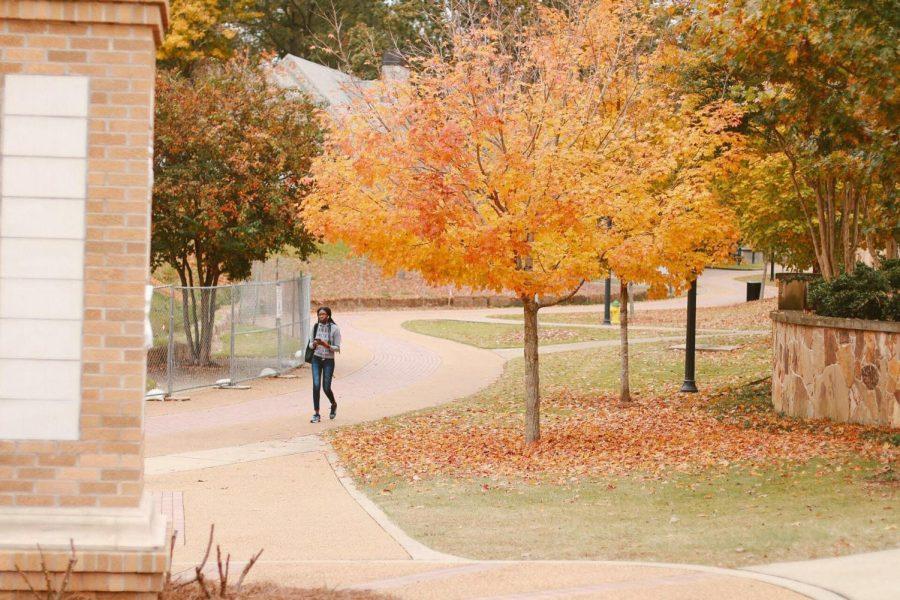Vice president sends a reminder to employees of ‘media protocol’
November 7, 2018
The university administration issued a reminder to the UNA faculty and staff Oct. 25 about an in-house media protocol, which suggests faculty and staff do not speak to the media without the administration’s examination of all inquiries beforehand.
Director of Communications and Marketing Bryan Rachal said the protocol requires all media inquiries be sent through his office so the proper administrators can examine the faculty and staff members’ responses before releasing them to the media.
The media protocol encourages student journalists to contact Rachal’s office to set up an interview with faculty or staff instead of directly contacting them.
“The university asks that all employees follow the media protocol,” Rachal said. “This includes all faculty and staff. The university stands on its statement earlier in the week that it seeks to ensure that whatever is communicated to and through the media is accurate, clear and has been vetted by administrators who have the information and are responsible for the subject matter.”
Rachal said the university’s administration established the protocol in 2015, but there is no official documentation regarding it.
The media protocol does not exist within the employee handbook.
“Each year, my office provides a reminder to the local media regarding the protocol,” Rachal said. “The reminder is almost always delivered via conversation. My office is responsible for educating the university and the media on the protocol.”
Jasmine Fleming, a former editor-in-chief for The Flor-Ala, said her staff agreed to the university’s request in 2016 with the mindset to communicate to Rachal, but if he tried to block them from talking to someone, they would contact them directly.
“I cannot remember a time when he did try to block us from reaching sources, and it was actually a little more convenient because he sometimes directed us to a better source than we originally thought to contact,” Fleming said. “But that was our experience. Not sure if Bryan and the university would be as helpful to you guys now.”
Director of the Brechner Center for Freedom of Information Frank LoMonte said the protocol can be detrimental to journalists doing their job and the public’s right to know the truth of an institution’s actions.
LoMonte said any time a university tries to set up a public relations office as the sole gatekeeper of access for interviews, it raises all kinds of problems.
“First, the P.R. office may be motivated to steer reporters away from people with views critical of university policies or may deny the interview altogether and expect the reporter to be satisfied with a canned statement,” LoMonte said. “A press release does not give the public a complete and accurate understanding of the situation. It creates an intimidating climate for employees if they feel that their interactions with journalists are being tracked and monitored.”
Student Media Adviser Scott Morris said the media protocol is just another obstacle for student journalists to operate around while under deadline pressures, and there could be temptation on the part of the university to censor the answers to protect its image.
LoMonte said such protocols could prevent or hinder an employee’s ability to speak out against university policies they do not agree about. He said the consequences could cast a shadow of intimidation over an employee’s First Amendment rights.
“There are times that employee whistleblowers want to furnish information confidentially, and if journalists are not able to get one-on-one meetings without administrative approval, that inhibits whistleblowing, which often is exactly what the agencies are hoping to accomplish,” LoMonte said.
Rachal said faculty and staff are not subject to discipline for failure to follow the protocol.
Morris said it would be ideal for both journalists and employees to ignore the protocol, but even though there is no penalty to speak up, people will still be too scared to do it.
“It shows that the administrators are obsessed with protecting their image, and they do not trust their employees,” Morris said.
The Flor-Ala’s current staff first encountered the media protocol Oct. 25 when UNA Police Chief Kevin Gillian said he was not allowed to confirm details concerning Deputy Chief of Police Mark Parker’s trip to a school-sponsored event in New Mexico this summer.
“I am technically not supposed to speak directly to the media,” Gillian said. “I received a reminder about the university’s media protocol from a vice president earlier today.”
Again, Student Affairs Education and Prevention Coordinator Madeline Frankford told a Flor-Ala editor Oct. 25 at the “It’s on Us” event she was not allowed to give comments to the media.
Rachal declined to answer why the reminders were sent to employees Oct. 25 and identify which vice president sent them.
LoMonte said that a P.R. issued statement is not a legally binding university policy, and the director of media relations for a university does not have the authority to make legally binding policies enforceable against all the university’s employees.
“Unless the policy went through formal approval channels, it’s not really a ‘policy’ at all, it’s more of a request or a suggestion,” LoMonte said. “A professor or a police officer is not supervised by the P.R. office and cannot be fired by the P.R. office.”
He said as official as the protocol sounds, it is still just a suggestion.












